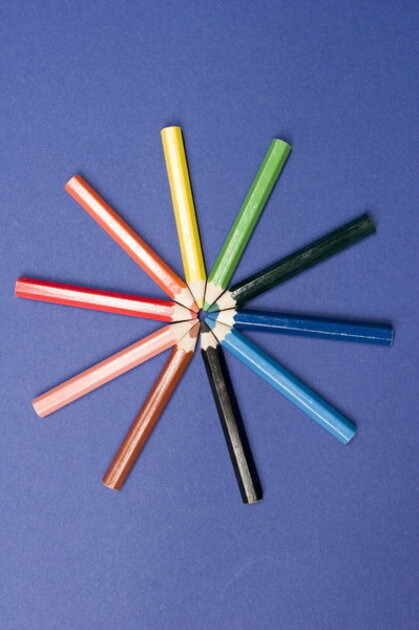
It may be that the Hebrew word m’funuk and the English word finicky are cognate. Even if they share an origin, they have parted company in meaning.
Rashi defines the term istenis as m’funuk. (Sotah 11a)
Finicky people are picky and often unsatisfied. They complain more than they suffer.
An istenis suffers.
Rabbi Yannai says: All the days of the poor are terrible (Mishlei 15:15); this refers to one who is an istenis. (Sanhedrin 100b)
Rav Shaishes was unable to eat an evening meal if he had eaten that morning. He was an istenis. (Rashi on Pesachim 108a)
It once happened that an istenis suffered and did not complain, with tragic results.
Rav said to his son Chiya, and Rav Huna said to his son Rabba...rinse [the wine cup], drink, rinse, and put it down. But when you drink water, [just] pour out and then give to your student. It once happened that someone drank water and did not pour some of it out. He gave [the cup] to his student. This student was an istenis and he did not want to drink [from this cup]. He died of thirst. At that time, they said: A person should not drink water and give to his student unless he first poured out some of it. Rav Ashi said: Therefore, a student who pours out water in the presence of his teacher is not considered disrespectful. (Tamid 27b)
Even though it is not disrespectful for the student to pour from the cup after his Rebbe drank from it, it is the responsibility of the Rebbe to pour from the cup for his student!
Even though it is not disrespectful, we see that the Rav should pour out the water and then give the cup to his student. The Rav should not depend on the student to pour it out because the student might be reluctant to pour it out in front of his rebbe, and become endangered like the student in this Gemara. (Maharsha ibid)
Just because of this one student, one boy who was an istenis? Are so many people in the category of istenis that we make a rule to accommodate them?
Yes. Today we are all istanis. Things that were once luxuries are now experienced as necessities to the extent that we are not only unhappy without them, we suffer without them.
Can you imagine living the way our ancestors did just a few generations ago?
In the 1800s, those who could afford a bathtub bathed a few times a month, but the poor were likely to bathe only once a year. Doctors advised against bathing believing it had a negative effect on health and on the appearance of the skin.
In the early 1900s a typical family washed once a week on Saturday night. They used one tub of water, with the father bathing first, then the mother, then each child.
In the mid 1900s, indoor plumbing became widely available along with modern bathrooms. Around this time, advertisers heavily marketed soap and shampoo, and daily showering became the norm. (https://healthfacts.blog/2017/09/25/how-often-did-people-bathe-in-ancient-times)
Our homes and workplaces have changed to accommodate our new level of istenis, a word I have not translated. I don’t know of an English word that captures the sensation of discomfort, revulsion, pain, or disgust that may be experienced by an istenis in the situations in which he struggles.
There is something else an istenis may experience: distraction. Especially when that istenis is a child.
Our children have come to a new level of istenis, too. They find it harder to sit still for long periods in a classroom. There has been some research about that, and an interesting remedy: stand-biased desks.
Stand-biased desks are not detrimental to classroom behavior or learning. Stand-biased desk use was associated with significant improvements in executive function and working memory capabilities in high school students. Students that were less attentive at baseline were more attentive at follow up when using the standing desk compared with the traditional desk. (From: Swartz, A. M., Tokarek, N. R., Strath, S. J., Lisdahl, K. M., & Cho, C. C. (2020). Attentiveness and Fidgeting While Using a Stand-Biased Desk in Elementary School Children. International journal of environmental research and public health, 17(11), 3976. https://doi.org/10.3390/ijerph17113976)
Stand-biased desks allow students to sit (on a stool) or stand at will.
Children become more restless and distracted with prolonged sitting... Students were less distracted while working at a standing desk.
The success of stand-biased desks is nothing new.
Benjamin Franklin had a patent on a standing school desk over 200 years ago, and Thomas Jefferson worked at one that he designed himself. Charles Dickens, Ernest Hemingway, Napoleon Bonaparte and even Donald Rumsfeld have all worked at standing desks to create some of their most memorable work.
Although research and history have shown that stand-biased desks have many favorable effects, most Western workers and students are still engaged in seated desk work for the majority of their day. (https://qz.com/460167/standing-desks-make-children-better-students/)
According to the Gemara and Maharsha cited above, educators are urged to help the minority of students who are in the category of istenis rather than expecting them to help themselves. Today, such students may be the majority. In any case, a community that has adopted so many conveniences as though they were necessities should consider providing an environment most conducive to the success of its students.
Rabbi Yitzchak Shmuel Ackerman is a Licensed Mental Health Counselor with specialties in marriage, dating, and parenting.
He is the author of Confident Parents, Competent Children, in Four Seconds at a Time Available at bookstores and on Amazon.
He can be reached at 718-344-6575.

 Previous
Previous

